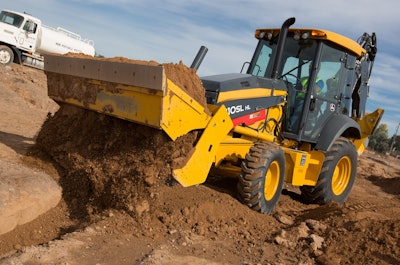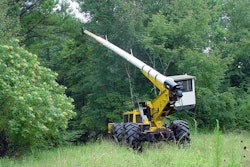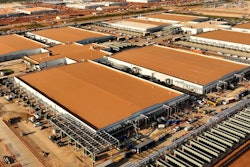
The industry's inventory woes may have gotten even more pronounced as Deere & Company's 10,000 UAW workers declared a strike at midnight Oct. 14th.
It is the first major strike at the company since 1986, says The Courier, based in Waterloo, Iowa, where Deere has several plants including its agricultural tractor and engine works. About 90% of UAW members rejected Deere's latest offer on Oct. 10th. (UAW provided its members with outlined contract changes on Oct. 7th, shown here.) The 1986 strike lasted more than 5 months.
“Our members at John Deere strike for the ability to earn a decent living, retire with dignity and establish fair work rules,” says Chuck Browning, vice president and director of the International Union, United Automobile, Aerospace and Agricultural Implement Workers of America's (UAW) Agricultural Implement Department. “We stay committed to bargaining until our members’ goals are achieved.”
"John Deere is committed to a favorable outcome for our employees, our communities and everyone involved," says Brad Morris, Deere's vice president for labor relations. "We are determined to reach an agreement with the UAW that would put every employee in a better economic position and continue to make them the highest paid employees in the agriculture and construction industries."
Morris adds: "We will keep working day and night to understand our employees' priorities and resolve this strike, while also keeping our operations running for the benefit of all those we serve."
A good time to strike?
Unions know they are in a good position to press for favorable changes in today's tight labor market and in the face of increasing demand.
In its Q3 earnings report, John Stone, president of Deere's Construction & Forestry Division said, “Demand for earthmoving and compact construction equipment will exceed our production for the year, resulting in low inventory levels as we exit the fiscal year,"
UAW President Ray Curry notes that "UAW John Deere members have worked through the pandemic after the company deemed them essential, to produce the equipment that feeds America, builds America and powers the American economy. These essential UAW workers are showing us all that through the power of a strong united union voice on the picket line they can make a difference for working families here and throughout the country.”
Picket lines have been set up outside Deere plants in Iowa, Illinois and Kansas. Deere says it has activated its "Customer Service Continuation Plan," in which "employees and others will be entering our factories daily to keep our operations running. Our immediate concern is meeting the needs of our customers, who work in time-sensitive and critical industries such as agriculture and construction."
The Courier says Deere's six-year offer would have raised wages by 20% over the life of the contract and also increased some benefits. The Dubuque Telegraph-Herald, where the company's massive Dubuque Works is located, reported that Deere's offer would have raised a typical production employees salary from $33 an hour to nearly $40 an hour over the six-year contract.
Other OEMs likely are paying close attention to strike outcome. CNH Industrial and UAW negotiated their current six-year agreement in 2016. The current Caterpillar/UAW contract runs through 2023.











